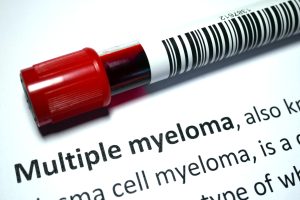
24 RCCA Physicians Named to 2025 Castle Connolly ‘Top Doctors’ List for Exceptional Cancer Care
A cancer diagnosis can be frightening. An individual may worry about how, or if, they will get better. The future becomes unclear and the strain
HIPAA Alert: Potential Data Breach Learn More
Questions on Oncology, Hematology and/or Infusion Clinical Services due to COVID-19 Crisis – CALL 833-698-1623
Important Information for Our Patients Regarding the Coronavirus.
RCCA Providing Area Cancer Patients with Access to Care During Coronavirus Outbreak
RCCA Offering Patients Virtual Visits During Coronavirus Pandemic
Clinical trials play a crucial role in advancing medical knowledge and improving patient care. However, patients considering participating in a clinical trial naturally want to know how safe these studies are and if there are any risks involved.
Regional Cancer Care Associates, one of the nation’s largest networks of oncology specialists, offers patients the opportunity to participate in approximately 300 clinical trials at its community-based care centers throughout New Jersey, Connecticut, Maryland, and the Washington, D.C., area. In this article, RCCA explains the key points patients need to know about clinical trials and the factors to consider when determining whether to enroll in one.

Every FDA-approved cancer therapy available to patients today was evaluated in a clinical trial – typically, in multiple clinical trials. Without those trials, people would not have access to these life-saving and life-prolonging medicines. And without cancer patients enrolling in those trials in hopes of helping themselves and others, the trials could not have generated the results that led to the FDA approving the therapies that millions of people across American and the world rely upon.
Clinical trials are conducted to evaluate the safety and efficacy of investigational agents that have shown promise in laboratory and, often, animal studies.
The studies provide the medical community with vital information on whether a new treatment or treatment approach can offer patients better results than currently available therapies. They also enable physicians to understand how the potential benefits of a treatment compare to its potential side effects in various types of patients.
While preclinical studies can provide important signals about potential safety concerns in humans, they cannot predict outcomes with certainty. That’s why the first studies of a new drug conducted in humans are relatively small Phase 1 trials focused on understanding the safety and pharmacological activity of a medication. If the agent demonstrates an acceptable safety profile in those Phase 1 studies, larger Phase 2 studies are conducted to assess both safety and efficacy. And if those results are positive, Phase 3 studies evaluate safety and efficacy in an even-larger population, with the data generated typically submitted to the Food and Drug Administration (FDA) as part of an application to secure approval of the drug.
At each stage along the way, studies must be designed and conducted in accord with ethical standards and FDA regulations. Each medical facility enrolling patients in a study also must have the study reviewed and approved by its Institutional Review Board, or IRB. This panel consists of several well-respected members of the medical community and features qualified medical professionals, researchers, and other members of the field of medicine. The purpose of this board is to ensure participant’s rights, safety, and welfare are protected, as well as to ensure the study itself is conducted for honest and ethical reasons.
Once a study is under way, a Data Safety Monitoring Board watches carefully for any signs of emerging safety concerns and may call for the study to be halted if significant issues arise.
In some cases, safety issues affecting a specific subset of patients will be identified. As an example, within the full study population of patients with colorectal cancer, those taking another medication or with a specific other condition may have a high rate of side effects while receiving the investigational agent. When this occurs, the investigators conducting the trial may amend their study protocol to exclude people with that condition or taking that medication to protect the health of those patients. If the FDA ultimately approves the drug based on the results of Phase 3 study data, the product labeling for the medication may explicitly state that the drug should not be prescribed to people with the problematic condition or taking the other medication.
To better protect participants, clinical trial investigators must obtain informed consent from patients before enrolling them in a study. This means that participants must be provided with accurate information about the study, including potential benefits and risks to the extent that they are known, to allow them to make an informed decision about whether to enroll. Potential participants must also be given an appropriate amount of time to ask questions and discuss matters with family and friends.
In short, while it is impossible to absolutely eliminate risk from clinical trials, numerous steps have been put in place to reduce, control, and promptly identify and address any risks. It also is important to remember that while there is some degree of risk associated with every therapy, there also is considerable risk involved with not treating cancer and with treating it with medications that are not providing a satisfactory response.
There are several reasons someone would volunteer to be a part of a clinical trial, such as offering hope to other patients or helping to move science forward. Because clinical trials provide access to new treatments before those therapies are widely available, volunteers may participate in hopes of improving their own health.
Another advantage of partaking in clinical trials is receiving regular care from a research team that includes specialists and other healthcare professionals.
All clinical trials have eligibility requirements. These requirements depend on the specific study and its goals. Some trials require volunteers to be born a certain sex, to be within a specific age range, or to have been diagnosed with a certain type or stage of cancer.
Eligibility for a clinical trial may also depend on what treatments a patient has received previously and what effects those treatments had on their condition. Individuals wishing to learn more about eligibility requirements for various studies and whether or not they would be a good candidate can browse Regional Cancer Care Associates’ database of clinical trials.
In keeping with our mission to provide patients with the most innovative, up-to-date treatments, Regional Cancer Care Associates is proud to participate in more than 300 clinical trials. These trials are crucial for discovering new drugs and treatments for many cancer types, including breast, colon, lung, and prostate cancers.
Regardless of the clinical trial and its purpose, Regional Cancer Care Associates always prioritizes the well-being and safety of participants above other considerations. Patients who wish to be a part of a clinical trial will receive detailed information on the purpose of the study, the drugs involved, medical tests to be performed, possible side effects, and some statistics about other people in the clinical trial.
At Regional Cancer Care Associates, we are dedicated to providing our patients with the best possible care, including access to clinical trials. Patients in New Jersey, Connecticut, Maryland, and the Washington, D.C., area wishing to learn more about clinical trials and whether one may be the right approach for them can contact Regional Cancer Care Associates or schedule an appointment at the nearest location today.
For more information or to schedule an appointment,
call 844-346-7222. You can also schedule an appointment by calling the RCCA location nearest you.

A cancer diagnosis can be frightening. An individual may worry about how, or if, they will get better. The future becomes unclear and the strain

Multiple myeloma (MM) is a rare type of blood cancer that often develops without early symptoms, making awareness of risk factors essential. Regional Cancer Care

A cancer diagnosis can bring a wide range of emotions, from fear and stress to sadness and hope. These feelings are a natural part of

Regional Cancer Care Associates is one of fewer than 200 medical practices in the country selected to participate in the Oncology Care Model (OCM); a recent Medicare initiative aimed at improving care coordination and access to and quality of care for Medicare beneficiaries undergoing chemotherapy treatment.